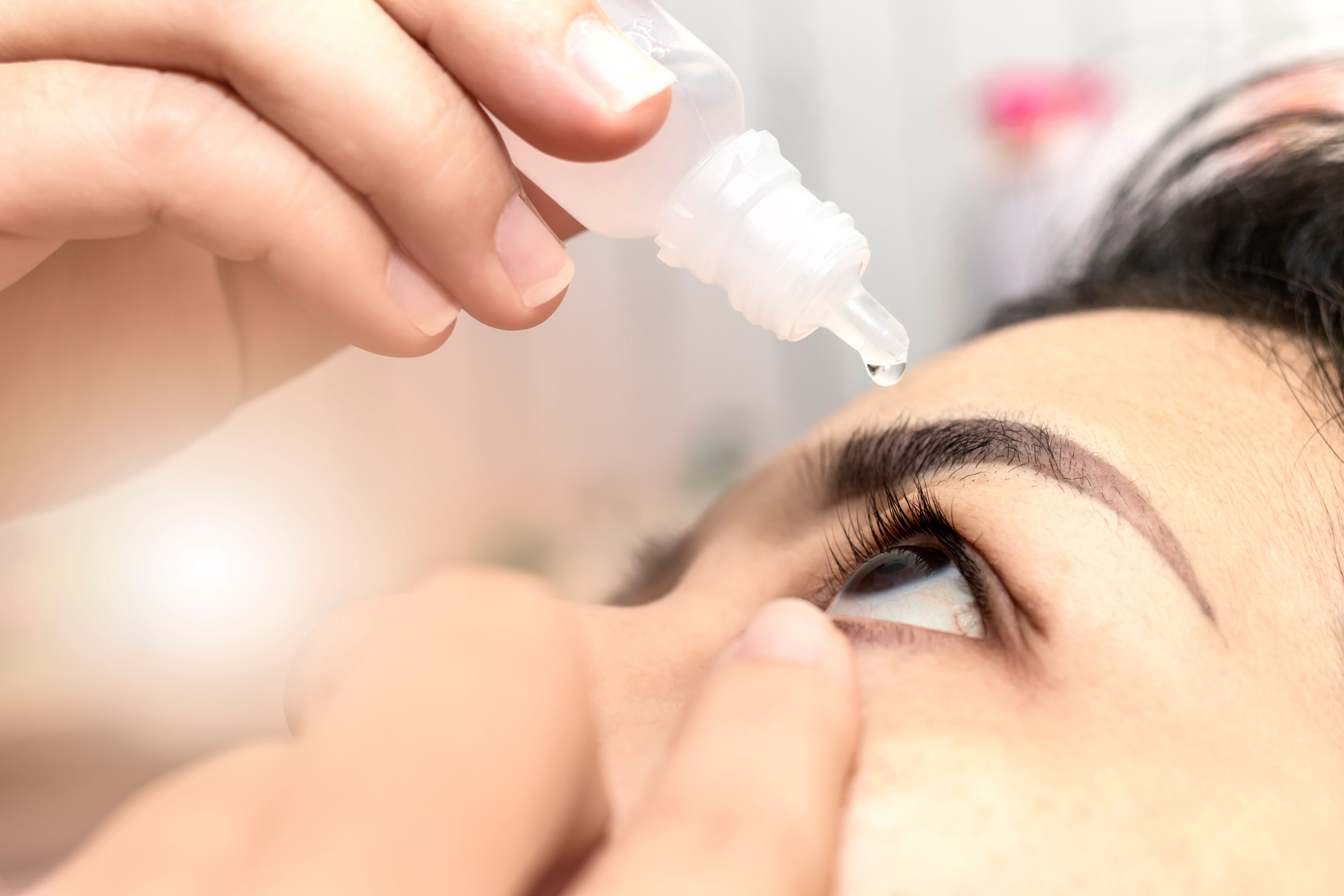Leaky Gut Syndrome: Signs, Causes, and How to Heal Your Gut
Know about the leaky gut syndrome, what it is, influence of modern diet and other factors, signs, symptoms, diagnosis, lifestyle changes, foods to avoid and to eat, treatment options and more.


Introduction
Imagine the lining of your digestive tract as a delicate, intelligent net. This net is designed to let tiny, beneficial nutrients pass into your bloodstream while keeping larger, harmful particles and toxins safely contained within your gut to be expelled. Leaky Gut Syndrome, scientifically known as increased intestinal permeability, is what happens when that net becomes damaged and develops large holes. This comprehensive guide will walk you through the leading causes, how to recognise the signs, the available tests, and the most effective dietary and lifestyle treatments to help you seal the leak and restore your health.
What Causes a Leaky Gut? The Main Culprits
A leaky gut doesn't develop overnight. It's typically the result of a perfect storm of modern lifestyle factors that chronically irritate and damage the delicate gut lining.
Consult a Gastroenterologist for Personalised Advice
The Modern Diet: Sugar, Processed Foods, and Gluten
The standard Western diet is public enemy number one for gut health. Excessive sugar intake, particularly high-fructose corn syrup, can feed harmful yeast and bacteria, leading to an imbalance. Highly processed foods often contain emulsifiers and additives that can degrade the protective mucus layer of the gut. Furthermore, gluten, a protein found in wheat, barley, and rye, can trigger the release of zonulin, a protein that regulates the tight junctions in your gut. For some individuals, high zonulin levels can cause these junctions to stay open, creating a pathway for particles to leak through.
Chronic Stress and Its Impact on Your Gut Lining
Your brain and gut are in constant communication via the gut-brain axis. When you're chronically stressed, your body is in a constant state of "fight or flight," which diverts resources away from non-essential functions like digestion and repair. This can lead to decreased production of digestive enzymes, altered gut motility, and a weakening of the intestinal barrier, making it more susceptible to damage.
Gut Bacteria Imbalance (Dysbiosis)
Your gut is home to trillions of bacteria, both good and bad. A healthy balance is crucial. When harmful bacteria outnumber the beneficial ones (a state called dysbiosis), they can damage the gut lining. This imbalance can be caused by a poor diet, overuse of antibiotics (which wipe out both good and bad bacteria), and lack of fermented foods in the diet.
Toxins and Medications
We are exposed to a significant number of environmental toxins from our food (pesticides, herbicides) and water. Alcohol is a direct irritant to the gut lining. Perhaps the most common medication culprits are non-steroidal anti-inflammatory drugs (NSAIDs) like ibuprofen and aspirin, which can irritate the gut lining and increase permeability with prolonged use.
Recognising the Signs: Symptoms of a Leaky Gut
The symptoms are diverse because the inflammation caused by a leaky gut can manifest anywhere in the body.
Digestive Distress: The Most Common Signs
The most obvious signs are related to digestion. This includes persistent bloating, excessive gas, cramps, diarrhoea, or constipation. Many people with a leaky gut also develop food sensitivities or intolerances, as their immune system begins to react to foods that are passing through the gut barrier improperly.
Beyond the Gut: Systemic and Surprising Symptoms
This is where it gets tricky. Because the leaked particles trigger body-wide inflammation and immune responses, symptoms can include:
- Brain fog, headaches, and difficulty concentrating.
- Chronic fatigue and low energy levels.
- Skin issues like acne, rosacea, or eczema.
- Joint pain and muscle aches.
- Mood imbalances like anxiety and depression, heavily influenced by the gut-brain axis.
Autoimmune conditions like rheumatoid arthritis or Hashimoto's thyroiditis, where the immune system mistakenly attacks the body's own tissues.
How is Leaky Gut Diagnosed? Understanding the Tests
Diagnosing a leaky gut can be challenging, as it's not yet a universally accepted medical diagnosis. However, several tests can provide clues.
The Lactulose-Mannitol Test (Intestinal Permeability Test)
This is the most direct test. You drink a solution containing two indigestible sugar molecules: lactulose (a larger molecule) and mannitol (a smaller one). A healthy gut will allow a small amount of mannitol to pass through, but will block most lactulose. In a leaky gut, higher levels of both, but particularly lactulose, will be detected in a urine sample collected over the next several hours, indicating that the larger molecules are passing through.
Zonulin Testing and IgG Food Sensitivity Panels
A blood or stool test can measure zonulin levels, the protein that regulates gut permeability. Elevated levels suggest the "tight junctions" may be open. Additionally, IgG food sensitivity tests can identify foods your immune system is reacting to, which is often a consequence of particles from those foods leaking into the bloodstream and triggering an antibody (IgG) response.
The Role of a Medical Professional
It is crucial to interpret these tests under the guidance of a healthcare provider. Many symptoms of a leaky gut overlap with more serious conditions like Celiac disease, Crohn's disease, or ulcerative colitis. If you experience persistent digestive issues or systemic inflammation, consult a doctor online with Apollo24|7 for further evaluation to rule out other underlying conditions before attributing your symptoms solely to a leaky gut.
The Leaky Gut Diet: Foods to Heal and Foods to Avoid
Diet is the most powerful tool for healing a leaky gut. The goal is to remove irritants and provide the building blocks for repair.
Foods to Embrace: Your Gut-Healing Toolkit
- Bone Broth: Rich in collagen, gelatin, and amino acids like proline and glycine, which are essential for repairing the gut lining.
- Fermented Foods: Sauerkraut, kimchi, kefir, and yoghurt (if dairy-tolerant) provide natural probiotics to reseed your gut with good bacteria.
- Healthy Fats: Avocado, olive oil, and coconut oil are anti-inflammatory and easy to digest.
- Cooked Vegetables: Well-cooked, non-starchy vegetables like spinach, carrots, and zucchini are gentle on the gut and provide vital nutrients.
- Omega-3 Rich Foods: Wild-caught salmon and chia seeds help combat systemic inflammation.
Foods to Eliminate: Giving Your Gut a Break
It includes:
- Gluten and Grains: Often inflammatory and difficult to digest for a compromised gut.
- Conventional Dairy: The casein protein can be problematic for many.
- Refined Sugar and Artificial Sweeteners: Feed bad bacteria and yeast.
- Processed Foods and Industrial Seed Oils: High in inflammatory omega-6 fats and additives.
- Alcohol and Caffeine: Direct irritants to the gut lining.
Treatment and Lifestyle Changes for Gut Repair
Healing is a process, not an event. A structured approach yields the best results.
The 4R Approach: Remove, Replace, Reinoculate, Repair
This is a standard functional medicine protocol:
1. Remove: Eliminate the triggers—inflammatory foods, pathogens, and stress.
2. Replace: Add back digestive enzymes or hydrochloric acid to support proper digestion.
3. Reinoculate: Restore beneficial bacteria with high-quality probiotics and prebiotics (food for the good bacteria, like garlic and onions).
4. Repair: Provide nutrients like L-Glutamine, zinc, and omega-3s that aid in healing the gut lining.
The Power of Probiotics and Prebiotics
A high-quality probiotic supplement can be invaluable in correcting dysbiosis. Look for strains like Lactobacillus and Bifidobacterium. Don't forget prebiotics from foods like garlic, onions, asparagus, and green bananas, which feed the probiotics you're taking.
Key Supplements for Gut Lining Repair
It includes:
- L-Glutamine: An amino acid that is the primary fuel source for the cells lining your intestine, crucial for repairing tight junctions.
- Zinc Carnosine: Shown to support gut barrier integrity and repair the stomach lining.
- Deglycyrrhizinated Liquorice (DGL): Soothes the stomach and intestinal lining.Quercetin: Helps stabilise mast cells (involved in allergic responses) and supports the gut barrier.
If your condition does not improve after trying these methods, book a physical visit to a doctor with Apollo24|7 to get a personalised treatment plan and ensure there isn't a more complex issue at play.
Conclusion
Healing a leaky gut is a journey back to the foundations of health. It requires patience, consistency, and a holistic approach that addresses not just what you eat, but also how you manage stress, sleep, and move your body. By understanding the root causes, recognising the multifaceted signs, and implementing a strategic plan centred on a healing diet and supportive treatment, you can repair your gut lining, reduce inflammation, and reclaim your energy and vitality. Remember, your gut is the gateway to your health. By nurturing it, you are investing in your overall well-being for years to come.
Consult a Gastroenterologist for Personalised Advice
Consult a Gastroenterologist for Personalised Advice

Dr. Sunil Kaul
General Surgeon
30 Years • MBBS, MS, FICS, FIMSA, FMAS
Delhi
Apollo Hospitals Indraprastha, Delhi
(25+ Patients)

Dr. Amit Pandita
Gastroenterology/gi Medicine Specialist
10 Years • MBBS. MD (INTERNAL MEDICINE) DrNB (GASTROENTEROLOGY AND HEPATOLOGY)
Delhi
Apollo Hospitals Indraprastha, Delhi

Dr. Ankit Vijay Agarwal
Gastroenterology/gi Medicine Specialist
14 Years • MBBS(Osmania), DNB(Internal Medicine ), DM ( Osmania) Consultant Gastroenterologist, Hepatologist and Advanced Therapeutic Endoscopist
Hyderabad
Apollo Hospitals Jubilee Hills, Hyderabad

Dr Piyush Vishwakarma
Gastroenterology/gi Medicine Specialist
11 Years • MBBS, MD, DrNB,
Delhi
Apollo Hospitals Indraprastha, Delhi

Dr Mithu Bhowmick
Gastroenterology/gi Medicine Specialist
7 Years • MBBS, MD, DM(PGIMER Chandigarh)
Guwahati
Apollo Hospitals G S Road, Guwahati
Consult a Gastroenterologist for Personalised Advice

Dr. Sunil Kaul
General Surgeon
30 Years • MBBS, MS, FICS, FIMSA, FMAS
Delhi
Apollo Hospitals Indraprastha, Delhi
(25+ Patients)

Dr. Amit Pandita
Gastroenterology/gi Medicine Specialist
10 Years • MBBS. MD (INTERNAL MEDICINE) DrNB (GASTROENTEROLOGY AND HEPATOLOGY)
Delhi
Apollo Hospitals Indraprastha, Delhi

Dr. Ankit Vijay Agarwal
Gastroenterology/gi Medicine Specialist
14 Years • MBBS(Osmania), DNB(Internal Medicine ), DM ( Osmania) Consultant Gastroenterologist, Hepatologist and Advanced Therapeutic Endoscopist
Hyderabad
Apollo Hospitals Jubilee Hills, Hyderabad

Dr Piyush Vishwakarma
Gastroenterology/gi Medicine Specialist
11 Years • MBBS, MD, DrNB,
Delhi
Apollo Hospitals Indraprastha, Delhi

Dr Mithu Bhowmick
Gastroenterology/gi Medicine Specialist
7 Years • MBBS, MD, DM(PGIMER Chandigarh)
Guwahati
Apollo Hospitals G S Road, Guwahati
More articles from General Medical Consultation
Frequently Asked Questions
Can you test for leaky gut at home?
While there are home test kits available that measure zonulin or offer IgG food sensitivity panels, the most reliable test (the lactulose/mannitol test) requires a urine collection that is then sent to a lab. It is highly recommended to work with a healthcare practitioner to order and interpret these tests accurately.
How long does it take to heal a leaky gut?
The timeline varies significantly from person to person, depending on the severity of the leaky gut, the underlying causes, and how strictly one follows a healing protocol. Some may see improvements in a few weeks, but for others, it can take several months or even longer of consistent effort.
Is leaky gut syndrome a real medical condition?
The term 'Leaky Gut Syndrome' is more common in integrative and functional medicine. The scientific term 'increased intestinal permeability' is a well-documented phenomenon and is recognised in mainstream medicine as a factor in conditions like Crohn's disease and Celiac disease. The concept that it drives a wide range of systemic symptoms is where the debate lies, though research is increasingly supporting the connection.
What is the best probiotic for leaky gut?
There is no single 'best' probiotic, as effectiveness depends on the individual's unique gut flora. Look for a high-quality, multi-strain supplement that contains well-researched strains like Lactobacillus rhamnosus GG, Lactobacillus acidophilus, and Bifidobacterium lactis. Soil-based probiotics are also a popular choice for gut repair.
Can leaky gut cause weight gain or make it hard to lose weight?
Yes, indirectly. The systemic inflammation caused by a leaky gut can disrupt hormones that regulate appetite and metabolism, such as leptin and insulin. This can lead to increased cravings, insulin resistance, and difficulties with weight management. Healing the gut can often help rebalance these hormones.




